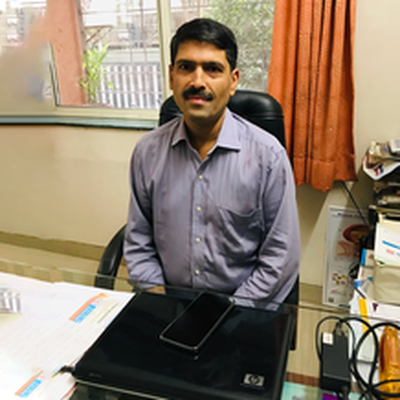Advanced Kidney Stone Solutions in Pune by Dr Abhijit Gokhale
الجسم
Most of us have heard about kidney stones and the pain they can cause, but not everyone knows exactly what they are, why some people get them, and how they are treated. A kidney stone can form when minerals build up in the urinary tract, creating crystals that consolidate into a pebble-like mass.
A kidney stone may be small and unnoticeable. But in some cases, it can grow to the size of a pea and become trapped in the ureter (the tube that drains urine from your kidneys down to your bladder), blocking urine flow and causing serious pain. In the worst cases, the pain is severe enough to prompt a trip to the emergency room, sometimes resulting in surgery.
One in 10 people will develop kidney stones at some point in their lives, and the number of cases has been gradually rising. Although kidney stones are more common in men than in women, anyone at any age can develop one.
What type of kidney stones do I have?
You probably have one of four main types of kidney stones. Treatment for kidney stones usually depends on their size, location, and what they are made of.
Calcium stones
Calcium stones, including calcium oxalate stones and calcium phosphate stones, are the most common types of kidney stones. Calcium oxalate stones are more common than calcium phosphate stones.
Calcium from food does not increase your chance of having calcium oxalate stones. Normally, extra calcium that isn’t used by your bones and muscles goes to your kidneys and is flushed out with urine. When this doesn’t happen, the calcium stays in the kidneys and joins with other waste products to form a kidney stone.
Uric acid stones
A uric acid stone may form when your urine contains too much acid. Eating a lot of fish, shellfish, and meat—especially organ meat—may increase uric acid in urine.
Struvite stones
Struvite stones may form after you have a UTI. They can develop suddenly and become large quickly.
Cystine stones
Cystine stones result from a disorder called cystinuria that is passed down through families. Cystinuria causes the amino acid cystine to leak through your kidneys and into the urine.
Home Remedies for Kidney Stones:
While home remedies are not a substitute for professional medical treatment, they may help manage symptoms and support overall kidney health. Here are some home remedies that individuals with kidney stones might consider:
- Hydration: Drinking plenty of water is crucial for preventing and managing kidney stones. Adequate fluid intake helps dilute urine and facilitates the passage of stones. Aim to drink at least 8-10 cups of water per day, or more if recommended by your healthcare provider.
- Lemon Juice and Olive Oil: Some people claim that a mixture of lemon juice and olive oil may help break down smaller stones and ease their passage. Mix equal parts of fresh lemon juice and olive oil and drink it followed by plenty of water. Consult with your doctor before trying this remedy.
- Apple Cider Vinegar: Some individuals use apple cider vinegar to help dissolve kidney stones. Mix two tablespoons of apple cider vinegar with water and drink it throughout the day. This remedy is not supported by strong scientific evidence, so it's essential to consult with a healthcare professional.
- Dietary Changes: Adjusting your diet may help prevent the formation of certain types of kidney stones. Reduce sodium intake, limit animal proteins, and avoid foods high in oxalates, such as beets, chocolate, nuts, and tea.
- Pomegranate Juice: Pomegranate juice is thought by some to have beneficial effects on kidney stones. It may help prevent the formation of crystals that contribute to stone development. However, more research is needed to establish its efficacy.
- Dandelion Root Tea: Dandelion root tea is believed by some to have diuretic properties that may help flush out the kidneys. While it's generally safe, individuals should exercise caution and consult with their healthcare provider, especially if they have any underlying health conditions.
- Stay Active: Regular physical activity may contribute to overall kidney health. Exercise can help maintain a healthy weight and promote proper kidney function.
It's crucial to consult with a healthcare professional before trying any home remedies, especially if you have kidney stones or other health conditions. Kidney stones require proper diagnosis and management under the guidance of a qualified medical professional.
While home remedies can be beneficial for managing symptoms and promoting overall kidney health, they should not replace professional medical treatment. At Dr. Abhijit Gokhale's clinic, we emphasize the importance of seeking expert care for kidney stone treatment in Pune. Our advanced treatment options, including Extracorporeal Shock Wave Lithotripsy (ESWL) and laser kidney stone removal, are designed to provide effective relief and ensure optimal kidney function.
By choosing professional treatment, you not only address the immediate discomfort caused by kidney stones but also reduce the risk of future complications. contact us today to explore your treatment options and take a proactive step towards better kidney health!
????Visit Here For More Info: ???? https://www.drabhijitgokhale.com/kidney-stone






تعليقات